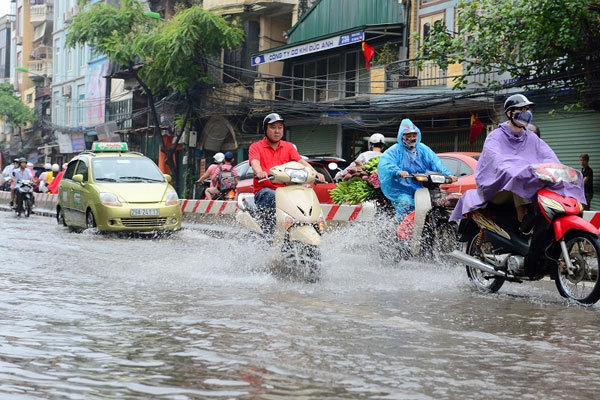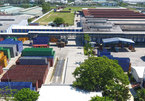and requires the participation of all stakeholders in the country.
 |
| Environmental changes driving era of responsibility. Illustration photo |
Nowadays, consumers care more and more about responsible businesses – those that take into account social, ethical, and environmental efforts – alongside the quality of products on offer. As a result, many consumers who can afford it are also willing to pay higher prices for responsibly-produced wares.
Amid global competition, Vietnamese businesses must converge those factors to meet the requirements of high-end markets. Even though the country joined many new-generation free trade agreements throughout recent years, the advantages of these will not come if businesses do not adapt as efficiently as possible.
Not yet internalised
Although COVID-19 has harmed the business operations of Phu Nhuan Jewelry JSC (PNJ), the pandemic did not interfere much with the company’s supply chain, mostly because its leadership “applied the corporate sustainability index (CSI) to better its entire system for the last two years,” said Le Tri Thong, general director of PNJ.
“The pandemic has shown that companies with responsible business capabilities are more resilient,” Thong said.
In his eyes, sustainable development is not a story of the future but an assortment of everyday actions that are sometimes very simple, such as reducing the use of plastic products and changing towards glass bottles. Thanks to that, PNJ has the preserved its suppliers and a system that is adapted to optimisation and cost- and energy-saving practices.
A survey conducted by the Vietnam Chamber of Commerce and Industry (VCCI) shows a strong correlation between the performance of governance indicators and information transparency, social and environmental indices, and business results. Enterprises applying the CSI have achieved better results and higher labour productivity, and 60 per cent of surveyed businesses implementing the CSI believe they are doing better than their competitors, while only 27 per cent of businesses in the control group were similarly confident.
Despite the implications of the pandemic, natural disasters, and rising trade protectionism, Vu Tien Loc, chairman of the VCCI said, “Sustainable development is not a common trend of the business community, as most of the Vietnamese enterprises are not yet participating towards mutually beneficial goals.”
Overall, Loc judged that Vietnam’s business community is still “quite far away from the rest of the world in terms of technology, management, and capital”.
In order to push the business community towards sustainable development, Loc argued that, in addition to an appropriate legal and policy framework, the spread of sustainable development models and technologies is necessary to promote advancement in this area. “We need to talk about specific models that companies can follow and concrete technologies that they can apply, rather than just spreading general messages,” he said.
Common approaches
Dr. Nguyen Dinh Cung, a member of the Prime Minister’s Economic Advisory Group for the 2016-2021 tenure, said, “While Vietnam has a lot of sustainable business models, there are also many irresponsible investment models that business remain to follow.”
Cung referred to some land clearance projects, where land is taken from farmers without adequately compensating them, regardless of their livelihoods. Other projects he mentioned took land and abandoned it, causing huge waste.
Even if most consumers tend to support responsible businesses, getting companies to embrace this trend seems difficult. In Vietnam, the number of businesses deemed responsible accounts for only about 4-5 per cent, with most of them being large enterprises and some medium-sized ones.
Thus, Cung said, “Building a sustainable development community with responsible businesses requires the participation of all stakeholders, including international organisations, the government, and the business community.”
According to Cung, encouraging the many small business households to follow the path of sustainable development should be a very important goal. “However, if they see these efforts as a burden, they won’t succeed. Therefore, it is important to convey responsible habits not as a challenge but as a driving force that offers many advantages to them in the long run,” he said.
However, Cung also emphasised that over-managing sustainable development by adding bureaucratic hurdles to small businesses will backfire, “as they will not want to join something that seems to only be a hassle.”
Such programmes to entice sustainable business practices need to be smarter, more creative, and more market-oriented, helping the business community to create an endogenous driving force for their responsible business cooperation.
While COVID-19 has disrupted global supply chains, the imbalance between human progress and natural preservation remains an issue. Dr. Benjamin Rawson, conservation and programme development director of WWF Vietnam said, “The country needs to further emphasise the value of eco-friendly actions, which can only be obtained by integrating biodiversity conversation into business activities.”
Rawson believed that Vietnam has made some positive moves, such as the National Assembly passing the new Law on Environmental Protection in November to protect, develop, and regenerate its forests after the impacts of some hydropower projects.
|
Vietnam has already achieved many sustainable development results, which are highly recognised by the international community. But the country still has a lot of work to do to achieve the targets and indicators set out in the United Nations’ 2030 Agenda for Sustainable Development, as well as the national plans and programmes on sustainable development. Difficulties posed in the sustainable development process are not only related to enterprises, environmental protection, and protecting forests, land, and water, but also relate to social issues. In order to achieve the goals by 2030, the biggest challenge is to make everyone aware that this is the right thing to do for every individual and business. From the lessons learnt in the fight and prevention of the pandemic, it is easy for everyone to agree that Vietnamese are well aware of their responsibility towards their relatives, loved ones, the community, and the whole world. Similarly, sustainable development can only be successful if all businesses perceive that their growth must be sustainable. To do so, in addition to advocating and encouraging, we must build a legal framework, specific mechanisms, and policies. Individuals and businesses that act against these goals must be dealt with. Those who develop and orient towards it are given priority when it comes to resources, support, and recognition in society. However, making individuals, businesses, and organisations understand their responsibility is much more difficult than preventing the spread of the pandemic, because sustainable development issues do not affect them immediately and visibly. For us to become a country with a highly competitive economy, first of all, we must have a very favourable business environment, along with the legal and policy framework for businesses to develop sustainably. The Vietnam Chamber of Commerce and Industry and related authorities continue to work closely with businesses to exchange ideas on solutions to constantly innovate the framework and aid the business environment. As the world is so small, there is no other way but to strengthen cooperation – which has so far been the slowest-progressing group of indicators on Vietnam’s sustainable development index. The management and administration of each enterprise, each organisation, and the whole country needs a synchronous coordination between state agencies, companies, and organisations of each industry.
|
“We live in a world where consumers are becoming more and more aware of what brands are doing. Meanwhile, companies focus more on sustainable values for consumers, in addition to financial ones. However, they must do more and act even more responsibly,” Rawson said. VIR
Hai Van

Local businesses remain indifferent to sustainable development solutions
In Vietnam, only 2,000 out of 700,000 businesses have joined the Vietnam Business Council for Sustainable Development (VBCSD), according to the Vietnam Chamber of Commerce and Industry (VCCI).